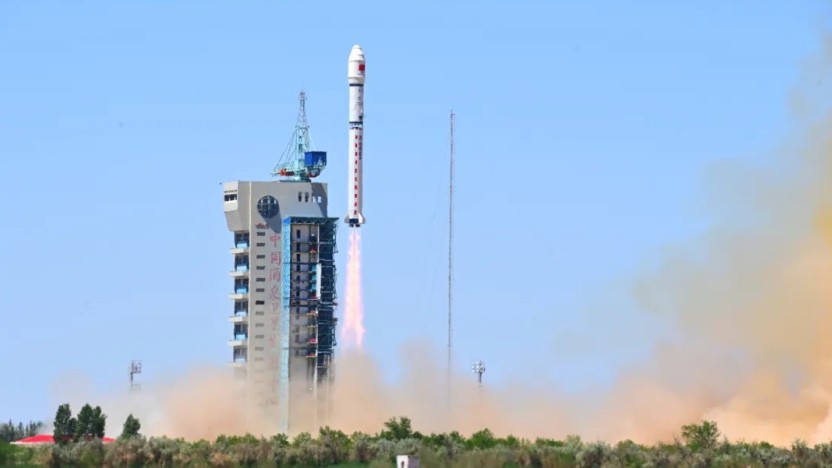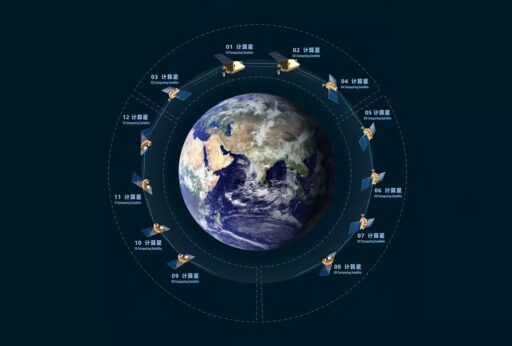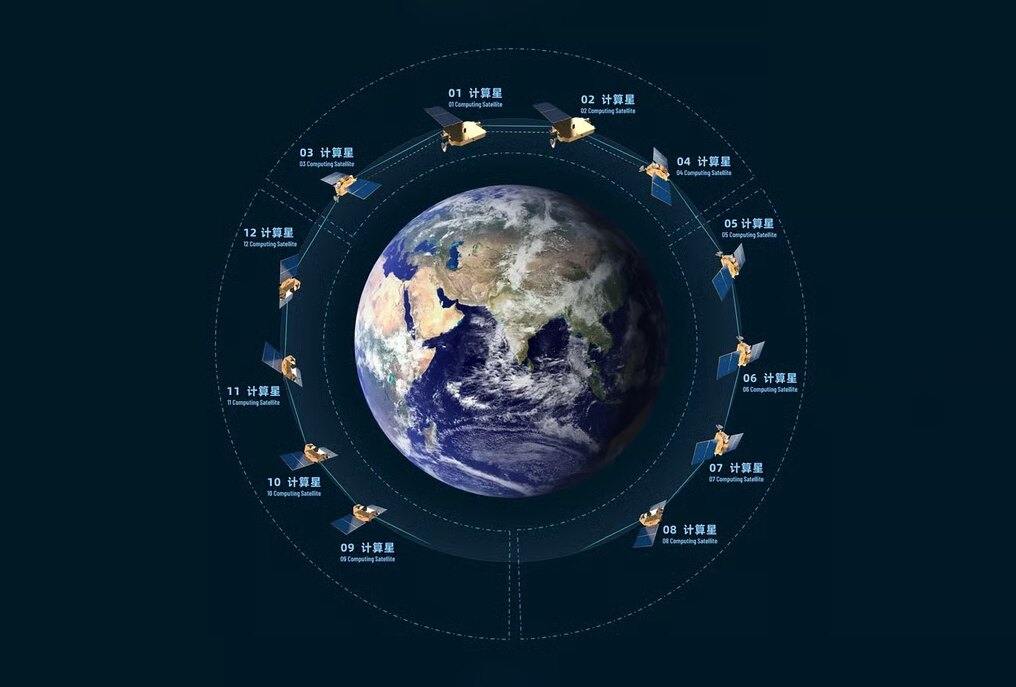Last updated on May 30, 2025
While the world’s attention is focused on geopolitical tensions on Earth, China is quietly advancing its long-term ambitions in space through the Star Computing project—a move that could reshape global data processing and the future of artificial intelligence.
A New Role for Satellites
Traditionally, satellites have been limited to collecting data and relaying it back to ground-based data centers for processing. China’s Star Computing initiative, however, introduces a radical shift: satellites that not only gather data but also process it directly in orbit. This approach reduces reliance on terrestrial infrastructure, lowers maintenance costs, and creates a more autonomous, scalable, and resilient network—less vulnerable in crisis situations and harder to disrupt.
The Launch: Beginning of an Orbital Network
On May 14, 2025, China launched the first 12 satellites of the planned 2,800-strong “Three-Body Computing Constellation,” led by ADA Space and Zhejiang Lab. Each satellite is equipped with an artificial intelligence model boasting eight billion parameters and a processing power of 744 trillion operations per second (TOPS). Collectively, the initial batch can handle five peta operations per second (POPS), with a long-term goal of reaching 1,000 POPS as the constellation expands.

On May 14, twelve satellites were sent into space aboard a Long March 2D rocket launched from the Jiuquan base. They are part of the “Star Computing” program and were built by the company Guoxing Aerospace. This is only the beginning—China intends to build a network of approximately 2,800 satellites, interconnected with laser links.
Even though these numbers are still far from Starlink’s ambitions—SpaceX’s project already has over 6,750 active satellites—the difference lies in their purpose. While Starlink mainly targets global internet coverage, China appears to be pursuing a decentralized computing infrastructure, with possible applications in fields such as defense, AI, and secure communications.
Rising Tensions: The US and China Face Off in Space
Lately, there have been increasing signs that the rivalry between Washington and Beijing is extending further beyond the atmosphere. A recent example: an American military satellite was observed approaching a Chinese one, in a move some analysts interpreted as provocative.
At the same time, China’s involvement in space projects in Latin America is drawing the attention of the United States, which views with concern Beijing’s expanding influence in strategic regions.
Chinese media openly discuss “Star Computing” as a solution to the growing need for real-time processing, as well as a step toward a global network in which Earth-based and space-based technologies will be closely integrated.

Data Centers in Orbit: More Efficient and Cleaner
Beyond geopolitical ambitions, the project brings a compelling environmental argument. Ground-based data centers consume enormous amounts of energy, especially for cooling. In space, this problem does not exist—heat dissipates naturally, and energy comes directly from the Sun.
Jonathan McDowell, a researcher at Harvard, explained that this method could significantly reduce energy consumption and provide a major competitive advantage for countries that adopt it early.
Space: The Stage for New Conflicts?
Against the backdrop of these developments, the US Space Force has indicated there are signs of Chinese training for “aerial combat” in space—a concept that sounds like something out of a science fiction movie, but increasingly reflects the changing paradigms of security.
Who Controls Space, Controls the Future?
With this project, China is not only making a technological leap, but is also declaring its intention to directly influence the shape of tomorrow’s digital world. If the orbital computing network becomes a reality, it’s not just about processing speed or energy efficiency—it’s about who holds control over data, communications, and, by extension, power.
The future seems increasingly tied to what happens beyond the atmosphere. And China has just made a major move on this chessboard.







